Ukraine Government statements of the day.......
And......
Russia statements / actions during the day......
and...
http://news.yahoo.com/russia-warns-could-reduce-zero-economic-dependency-us-083926261.html;_ylt=AwrSyCVd_hVT7BUA4C3QtDMD
and.....
http://www.zerohedge.com/news/2014-03-04/kerry-lands-kiev-sanctions-against-russia-matter-days-us-prepares-1-billion-loan-ukr
( 1 billion loan guarantee is to offset loss of energy subsidy from Gazprom - looks like Russia gets paid some of Ukraine's 2 billion in natural gas arrears owed to Gazprom by the US ! Once the EU kicks in another billion , the tab through February will be squared. )
 Tuesday 04 March 2014 18.47
Tuesday 04 March 2014 18.47
Happy Days !
Ukraine Defense Ministry Says Repelled Armed Attempt To Capture Warship
Submitted by Tyler Durden on 03/04/2014 15:23 -0500

Truth, propaganda, or outright lies? Nobody knows anymore, but if an ICBM launch, which apparently the US had been aware of yet which came at the worst possible time even though Putin could have easily delayed, can barely dent the stock surge, who cares anymore.
From the Ukrainian Ministry of Defense:
Ukraine’s Navy Slavutych crew prevented the capture attempt by armed persons.“Armed persons in a boat came to the ship but the crew repelled their attack. There was even the attempt to board the ship, capture her, arms, and sailors,”informed Capt. 2nd Rank Vitaliy Zvyahintsev, Commander of Surface Ships Brigade, Ukraine’s Navy.Now, the ships of the Russian Federation Black Sea Fleet continue blocking the Ukrainian Navy ships in Crimea.All the military units and ships of the Ukrainian Armed forces deployed in Crimea follow the orders of the Ministry of Defense and the General Staff of the Ukrainian Armed Forces.
The Slavutych large intelligence shipshown in calmer times:

Ukraine Steps Up Protection Of Its Nuclear Power Plants, Cites "Grave Russian Threat"
Submitted by Tyler Durden on 03/04/2014 14:53 -0500

This one should be intuitive: with Ukraine scrambling to load up on natgas ahead of the price surge once Gazprom ends its discount pricing, and unclear what if any access it will have to Russian gas in the future and at what cost, it was only a matter of time before the Ukraine stepped up the protection of its only true energy asset: its 15 nuclear power plant, which supply nearly half of the country's energy needs. Ukraine told as much to the U.N. atomic watchdog on Tuesday, although it framed it as a result of the "grave threat to the security" of the country posed by the Russian military.
Ukraine has 15 nuclear power reactors in operation, accounting for nearly 44 percent of its electricity production in 2013, according to the International Atomic Energy Agency's (IAEA's) website. Ukraine's envoy to the IAEA said in a letter to IAEA Director General Yukiya Amano: "Illegal actions of the Russian armed forces on Ukrainian territory and the threat of use of force amount to a grave threat to security of Ukraine with its potential consequences for its nuclear power infrastructure."Ambassador Ihor Prokopchuk's letter, dated March 4, was circulated among delegations attending a week-long meeting of the IAEA's 35-nation governing board in Vienna. It was given to Reuters by a diplomat from another country.Prokopchuk's letter to Amano, apparently written before Putin's comments, said: "Under these circumstances, the competent authorities of Ukraine make every effort to ensure physical security, including reinforced physical protection of 15 power units in operation at four sites of Ukrainian NPPs (nuclear power plants)."However, consequences of the use of military force by the Russian federation against Ukraine will be unpredictable."On Sunday, Ukraine's parliament called for international monitors to help protect its nuclear power plants, as tension mounted with its neighbor.Prokopchuk urged Amano to "join international efforts in de-escalating the crisis around Ukraine and to urgently raise the issue of nuclear security" with Russia.Amano said on Monday there were 31 nuclear-related facilities in Ukraine that were being monitored by the IAEA to make sure there was no diversion of material for military purposes, as it does in other countries with nuclear plants.
Whether or not the protection surge is a result of Russian fears is irrelevant: one thing that is certain is that it is quite welcome, when one recalls that it was in the Ukraine where 28 years ago Chernobyl exploded in what was unti then the worst nuclear disaster in history.
In fact, perhaps instead of Crimea, Putin should have gone for one of the Japanese isles several years ago. Maybe only then could the great Fukushima disaster, which continues billowing alpha, beta and gamma rays to this day having surpassed Chernobyl in the worst radioactive catastrophes of all time record, would have been avoided.

And......
Russia statements / actions during the day......
Stock Rally Stalls As Russia Test-Fires Inter-Continental Ballistic Missile
Submitted by Tyler Durden on 03/04/2014 13:52 -0500
Because BTFWWIII is so yesterday, we present BTFICBMD:
- *RUSSIA TEST FIRES INTERCONTINENTAL BALLISTIC MISSILE: INTERFAX
- *RUSSIA TEST FIRED MISSILE FROM RANGE IN ASTRAKHAN REGION: IFX
- *RUSSIA MISSILE LAUNCHED AT 10:10PM IN SOUTHERN RUSSIA: INTERFAX
- *INTERFAX CITES RUSSIAN DEFENSE MINISTRY ON MISSILE TEST
But, the talking heads said Ukraine was fixed and Putin had folded?
Via Bloomberg:
Topol missile launched from firing range in Astrakhan region at 10:10pm Moscow time, news service reports, citing Russia’s Defense Ministry.Launch carried out by Russia’s Strategic Rocket ForcesMissile hit target in Kazakhstan: IFX
And Reuters:
Russia said it had successfully test-fired an Intercontinental Ballistic Missile (ICBM) on Tuesday, with tensions high over its seizure of control in the Crimea and its threat to send more forces to its neighbour Ukraine.The Strategic Rocket Forces launched an RS-12M Topol missile from the southerly Astrakhan region near the Caspian Sea and the dummy warhead hit its target at a proving ground in Kazakhstan, the state-run news agency RIA cited Defence Ministry spokesman Igor Yegorov as saying.
The Topol Missile:
And the reaction...USDJPY blips and the S&P 500 drops 5 points
and...
http://news.yahoo.com/russia-warns-could-reduce-zero-economic-dependency-us-083926261.html;_ylt=AwrSyCVd_hVT7BUA4C3QtDMD
Moscow (AFP) - Russia could reduce to zero its economic dependency on the United States if Washington agreed sanctions against Moscow over Ukraine, a Kremlin aide said on Tuesday, warning that the American financial system faced a "crash" if this happened.
"We would find a way not just to reduce our dependency on the United States to zero but to emerge from those sanctions with great benefits for ourselves," said Kremlin economic aide Sergei Glazyev.
He told the RIA Novosti news agency Russia could stop using dollars for international transactions and create its own payment system using its "wonderful trade and economic relations with our partners in the East and South."
Russian firms and banks would also not return loans from American financial institutions, he said.
"An attempt to announce sanctions would end in a crash for the financial system of the United States, which would cause the end of the domination of the United States in the global financial system," he added.
He said that economic sanctions imposed by the European Union would be a "catastrophe" for Europe, saying that Russia could halt gas supplies "which would be beneficial for the Americans" and give the Russian economy a useful "impulse".
Glazyev has long been seen as among the most hawkish of the advisors to President Vladimir Putin but many observers have seen his hand in the apparent radicalisation of policy on Ukraine since the overthrow of president Viktor Yanukovych.
Economists have long mocked his apocalyptic and confrontational vision of global economics but also expressed concern that he appears to have grown in authority in recent months.
A high ranking Kremlin source told RIA Novosti that Glazyev was speaking in the capacity of an "academic" and his personal opinion did not reflect the official Kremlin policy.
Glazyev descrived the new Ukrainian authorities as "illegitimate and Russophobic", saying some members of the government were on lists of "terrorist organisations, they are criminals".
"If the authorities remain criminal then I think the people of Ukraine will get rid of them soon," he added.
and.....
Russia Warns "Will Have To Respond" For US Sanctions
Submitted by Tyler Durden on 03/04/2014 13:14 -0500
It appears, given comments from Foreign Minister Lukashevich, that things are about to get ugly again...
"we will have to respond...if provoked by rash and irresponsible actions by Washington... and not necessarily symmetrically."
Via Reuters,
Russia said on Tuesday that it would retaliate if the United States imposed sanctions over Moscow's actions in Ukraine."We will have to respond,"Foreign Ministry spokesman Alexander Lukashevich said in a statement. "As always in such situations, provoked by rash and irresponsible actions by Washington, we stress: This is not our choice."
And Interfax adds:
- RUSSIA WILL HAVE TO RESPOND TO POSSIBLE U.S. SANCTIONS, "AND NOT NECESSARILY SYMMETRICALLY" - RUSSIAN FOREIGN MINISTRY
Given that Russian boots remain on the ground in Ukraine and that the US (and the west - ex-UK) are still pressing for crushing sanctions against Russia; one has to wonder whether Putin's carefully worded "annexation" comment did nothing but enable exits for oligarchs... What really changed?
Ukrainian, Russian Warships Cross Bosphorus, Enter Black Sea
Submitted by Tyler Durden on 03/04/2014 10:47 -0500

The Bosphorus has been a busy place today where first two Russian ships, the Alligator Class landing ship 150 Saratov and the Ropucha class landing ship 156 Yamal have passed the Turkish strait in a northerly, Black Sea, direction, followed promptly by the Ukrainian frigate U130 Hetman Sahaydachniy. Full steam ahead to a Sevastopol rendezvous? Find out in a few hours.
Photos and captions courtesy of Bosphorus Naval News:

Saratov passing through Bosphorus on 4 March 2014. Photo TRT
Yamal passing through Bosphorus on 4 March 2014. Photo AA
Ukrainian frigate Hetman Sahaidachny is passing through Bosphorus with Ukrainian flag hoisted.
h/t @Saturn5_
http://www.zerohedge.com/news/2014-03-04/kerry-lands-kiev-sanctions-against-russia-matter-days-us-prepares-1-billion-loan-ukr
( 1 billion loan guarantee is to offset loss of energy subsidy from Gazprom - looks like Russia gets paid some of Ukraine's 2 billion in natural gas arrears owed to Gazprom by the US ! Once the EU kicks in another billion , the tab through February will be squared. )
Kerry Lands In Kiev, Sanctions Against Russia "In Matter Of Days", US Prepares $1 Billion Loan For Ukraine
Submitted by Tyler Durden on 03/04/2014 08:10 -0500
And from the EU , here come the other 1 billion in loans or loan guarantees....
While the world digests the recent Putin press conference in which he appeared to superficially soften his stance on the Ukraine, US SecState John Kerry lands in Kiev while the state department announced that sanctions against Russia are "coming in a matter of days", and as the US announces it is preparing a $1 billion aid package for the Ukraine, which despite the toned down rhetoric by Putin just lost the Gazprom discount for natgas due to non-payment meaning its reserves will be depleted even faster, suggesting a far greater urgency to providing funding for the Ukraine in what some have said is now a fight between Putin and the IMF, as the latter tries to drain what little funds remain in the nation, while the former urgently seeks to keep it afloat.
EU to help Ukraine with $2bn owed to Russian gas firm
 Tuesday 04 March 2014 18.47
Tuesday 04 March 2014 18.47
The European Union will help Ukraine pay the $2 billion it owes to Russian gas giant Gazprom, a top official has said, as part of an aid package reportedly worth more than €1 billion.
EU Energy Commissioner Guenther Oettinger said that "payment of the outstanding Ukraine bills is high up in the Commission's aid package," expected to be adopted tomorrow.
Ukraine's state gas firm Naftogaz "owes about two billion dollars to Gazprom and we are going to help it pay this bill," he said, adding the EU could even supply the country with gas.
EU officials are due to nail down the details of the Ukraine aid package tomorrow, ahead of an emergency EU leaders' summit the following day.
Brussels has offered Ukraine €610 million ($840 million) in aid so far and reports suggest the 28-member bloc could free up an additional €500 million as the West faces off with Russia in a Cold War-style confrontation.
However, the package in the pipeline is a far cry from the €25 billion over two years which the newly installed Ukrainian government says it needs.
It is expecting the IMF to provide €15 billion this year.
Earlier, the United States pledged $1 billion in loan guarantees to Ukraine.
"We are mutually dependent: the European Union needs Russian gas and Russia's economy needs the money from its gas," Oettinger stressed.
The EU may even find itself providing gas to Ukraine, given the two are connected by a gas pipeline which allows the flow to be reversed - a legacy of the 2009 gas dispute between Ukraine and Russia.
"Slovakia could reverse the flow towards Ukraine," Oettinger said.
Yesterday, the Commission sent a delegation of experts to Kiev to assess the troubled country's financial needs.
On Sunday, finance ministers of the G7 grouping of leading world economies said they were determined to support Ukraine's battered economy, providing the country agreed to the economic reforms sought by the IMF.
EU agrees to freeze 18 Ukrainians' accounts
European Union governments have reached a preliminary agreement to freeze the assets of 18 Ukrainians, at Kiev's request, after Ukraine's new rulers said billions in public funds have gone missing.
The decision still needs to be made final in the coming days and follows similar moves last week by Austria, an EU member, as well as Switzerland and Liechtenstein.
Austrian authorities have included Ukraine's ousted president, Viktor Yanukovich, in their list of targets but it was not clear whether his assets would now be frozen throughout the 28-nation bloc.
The decision still needs to be made final in the coming days and follows similar moves last week by Austria, an EU member, as well as Switzerland and Liechtenstein.
Austrian authorities have included Ukraine's ousted president, Viktor Yanukovich, in their list of targets but it was not clear whether his assets would now be frozen throughout the 28-nation bloc.
Happy Days !
Futures Soar, Near Record As Putin Speaks, Softens Russian Stance On Ukraine
Submitted by Tyler Durden on 03/04/2014 06:51 -0500
Russia still consolidating power in Crimea.....
Futures are soaring and are just shy of their record high following a just completed press conference by Vladimir Putin in his residence outside of Moscow, in which the Russian leader appears to have softened his stance on Crimean aggression, saying he does not consider adding Crimea to its territory. What the market is focusing on is the repeat of Putin's stance that he will not be sending troops to the Crimea yet (even though they are there already), and that he suddenly appears concerned about the impact on markets and the fallout from sanctions.
The key highlights from the speech from Blooomberg.
- PUTIN SAYS UKRAINE SUFFERED COUP
- PUTIN SAYS UKRAINE GOVT OVERTHROW UNCONSTITUTIONAL, ARMED COUP
- PUTIN SAYS YANUKOVICH AGREED WITH OPPOSITION TO SURRENDER POWER
- PUTIN SAYS UKRAINE’S YANUKOVYCH DIDN’T GIVE ILLEGAL ORDER TO SHOOT
- PUTIN SAYS UKRAINE USED TO ONE SET OF CROOKS REPLACING ANOTHER
- PUTIN SAYS YANUKOVYCH IS UKRAINE'S LEGITIMATE PRESIDENT
- PUTIN SAYS YANUKOVYCH ASKED RUSSIA TO SEND TROOPS TO PROTECT PEOPLE
- PUTIN SAYS YANUKOVYCH HAS NO POLITICAL FUTURE
- PUTIN SAYS UKRAINE POLITICAL LIFE HAS BECOME FARCE
- PUTIN SAYS NO NEED TO SEND TROOPS TO UKRAINE YET
- PUTIN SAYS RUSSIA’S MILITARY EXERCISE HAD BEEN PLANNED LONG AGO
- PUTIN SAYS RUSSIA WOULD SEND TROOPS TO UKRAINE ONLY IN EXTREME CASE
- PUTIN SAYS NO BLOODSHED IN CRIMEA
- PUTIN SAYS RUSSIA TROOPS IN UKRAINE'S CRIMEA JUST REINFORCEMENT
- PUTIN SAYS MARKETS REACTED NERVOUSLY TO EVENTS DUE TO U.S. POLICY
- PUTIN SAYS POLITICS HAD "TACTICAL", TEMPORARY IMPACT ON MKTS
- PUTIN SAYS SANCTIONS AGAINST RUSSIA WOULD CAUSE MUTUAL DAMAGE
- PUTIN SAYS CRIMEAN ADMINISTRATION IS FULLY LEGITIMATE
- PUTIN SAYS RUSSIA NOT CONSIDERING ADDING CRIMEA TO RUSSIA
- PUTIN SAYS CRIMEA SELF-DEFENSE BLOCKED UKRAINE FORCES
- PUTIN SAYS WE DON’T PLAN TO FIGHT UKRAINIAN PEOPLE
- PUTIN SAYS DOESN’T WANT TO RECALL AMBASSADOR FROM U.S.
- PUTIN ORDERED RUSSIAN GOVT TO RENEW CONTACTS WITH UKRAINE GOVT
- PUTIN SAYS WEST ASKED RUSSIA NOT TO BUY MORE UKRAINE BONDS
- PUTIN SAYS NO IDEA WHO UKRAINE WILL ELECT AS PRESIDENT
- PUTIN SAYS AGREES W/ UKRAINE PROTESTERS' DEMAND FOR NEW LEADERS
- PUTIN SAYS MET YANUKOVYCH 2 DAYS AGO, SAYS HE'S ALIVE
On the oh so sensitive topic of Russian gas:
- PUTIN SAYS UKRAINE MAY OWE $2B FOR GAS AT END FEB.
- PUTIN SAYS GAZPROM CANCELLING UKRAINE GAS DISCOUNT OVER DEBT
Then
- RUSSIA'S LAVROV SAYS HOPES "OUR PARTNERS" WILL NOT IMPOSE SANCTIONS OVER UKRAINE AND WILL UNDERSTAND RUSSIAN POSITION
- RUSSIA'S LAVROV SAYS OUR MOVE IN CRIMEA WAS CORRECT, FORCES SEIZED ARMS AND EXPLOSIVES
So is this Putin offering an olive branch to the West and de-escalating Crimea, or just more smoke and mirrors for the media to consume even as Putin fully entrenches in the territory? Expect to find out shortly.
Finally, here is Reuters recap of events:
President Vladimir Putin said on Tuesday that Russia saw no need to use military force in the Crimea region of Ukraine for now, in remarks apparently intended to ease East-West tension over fears of war in the former Soviet republic.The use of force by Russia in Ukraine would be a choice of last resort, Putin said, and sanctions being considered against Moscow by the West would be counter-productive.Putin told a news conference at his state residence outside Moscow there had been an "unconstitutional coup" in Ukraine and ousted leader Viktor Yanukovich, an ally of Russia, was still the legitimate leader of the country despite giving up all power.Earlier on Tuesday, Putin ordered troops involved in a military exercise in western Russia, close to the border with Ukraine, back to their bases.Russian financial markets rebounded after sharp falls on Monday, and the euro and dollar rose in Japan, though Moscow's forces remained in control of Ukraine's Crimea region, seized bloodlessly after Yanukovich was ousted last month.Russia paid a heavy financial price on Monday for its military intervention in Ukraine, with stocks, bonds and the rouble plunging as Putin's forces tightened their grip in Crimea, whose population is mainly ethnic Russian.The Moscow stock market fell more than 10 percent on Monday, wiping nearly $60 billion off the value of Russian firms, but Russian stock indexes rose more than 4 percent early on Tuesday before slipping back again slightly, though still up on the day.Putin said the turmoil in Russian markets was a "tactical, temporary" decision by investors.U.S. Secretary of State John Kerry will propose ways for a negotiation between Russia and Ukraine to be overseen by a multilateral organisation when he visits Kiev on Tuesday.NATO allies will hold emergency talks on the crisis on Tuesday, for the second time in three days.GAZPROM PRICESIn further pressure on Kiev, Russia's top gas producer Gazprom said it would remove a discount on gas prices for Ukraine from April, Interfax news agency cited the company's chief as saying on Tuesday.However, Gazprom chief Alexei Miller also said the company could offer Ukraine a loan of $2-3 billion to pay off the country's debt of more than $1.5 billion after Ukraine said it was unable to pay in full for gas deliveries in February, Interfax news agency said.Putin said at the weekend that he had the right to invade Ukraine to protect Russian interests and citizens after Yanukovich's downfall following months of popular unrest. Russia's Black Sea Fleet has a base in Crimea.But the military exercises in central and western Russia, which began last week and raised fears that Russia might send forces to Russian-speaking regions of east Ukraine, were completed on schedule."The supreme commander of the armed forces of the Russian Federation, Vladimir Putin, gave the order for the troops and units, taking part in the military exercises, to return to their bases," Kremlin spokesman Dmitry Peskov was quoted as saying by Russian news agencies.Although the end of the exercises had been planned, the announcement sent a more conciliatory message than much of the rhetoric from Russian officials, who say Moscow must defend national interests and those of compatriots in Ukraine.Putin is dismayed that the new leadership in Ukraine, the cradle of Russian civilisation, has plotted a course towards the European Union and away from what had been Moscow's sphere of influence during generations of Soviet Communist rule.Moscow's U.N. envoy told a stormy meeting of the Security Council that Yanukovich had sent a letter to Putin requesting he use Russia's military to restore law and order in Ukraine.Ukraine said observers from the Organization for Security and Cooperation in Europe, a pan-European security body, would travel at its invitation to Crimea in an attempt to defuse the military standoff there.
RTS INDEXRTSI:RTF
| 1,181.93 |
66.87 / 6.00%
| 0 | |
| LATEST PRICE IN USD | TODAY'S CHANGE | SHARES TRADED | 1 YEAR CHANGE |
|---|
It Begins: Gazprom Warns European Gas "Supply Disruptions" Possible
Submitted by Tyler Durden on 03/04/2014 00:03 -0500
We had previously warned that Putin's "trump card" had yet to be played and with Obama (and a quickly dropping list of allies) preparing economic sanctions (given their limited escalation options otherwise), it was only a matter of time before the pressure was once again applied from the Russian side. As ITAR-TASS reports, Russia's Gazprom warned that not only could it cancel its "supply discount" as Ukraine's overdue payments reached $1.5 billion but that "simmering political tensions in Ukraine, that are aggravated by inadequate economic conditions, may cause disruptions of gas supplies to Europe." And with that one sentence, Europe will awaken to grave concerns over Russia's next steps should sanctions be applied.
It would appear this is the most important map in Europe once again...
Some recent history...
In late January, Ukraine asked Russia for deferral of payments for gas supplied in 2013 and in early 2014. President Vladimir Putin said Ukraine’s debt totalled $2.7 billion then.
and then...
On March 1, Gazprom’s spokesperson Sergai Kupriyanov said the gas holding could cancel its gas supply discount for Ukraine as its overdue debt for gas reached $1.5 billion. This figure includes debts not only for last year’s supplies, but also for the current deliveries."The situation with payments is worrying," said Andrei Kruglov, Gazprom's chief financial officer."Ukraine is paying but not as well as we would like it to. We are still thinking about whether to extend the pricing contract into the next quarter based on current prices."
And now today...
Russia’s gas giant Gazprom said on Monday it did not rule out possible disruptions of gas supplies to Europe over Ukraine’s political situation.“Simmering political tensions in Ukraine, that are aggravated by inadequate economic conditions, may cause disruptions of gas supplies to Europe,” the monopoly said in its materials, adding that it would do its utmost to reduce export risks.“We will further invest into other export-oriented projects such as South Stream and will enhance our LNG (liquefied natural gas) production and export capacity. We also increase our access to underground gas storage facilities in Europe.”Andrei Kruglov, Gazprom’s chief financial officer, said at the moment Russia had been supplying gas to Ukraine according to schedule, although the latter failed to fulfil its debt obligations.
With that last sentence providing exactly the 'real world' cover Gazprom needs to cut its supplies "through" Ukraine and thus to Europe...
And, as The Guardian notes, this would...
not the first time Russia has used gas exports to put pressure on its neighbour – and "gas wars" between the two countries tend to be felt far beyond their borders.Russia, after all, still supplies around 30% of Europe's gas.In late 2005, Gazprom said it planned to hike the price it charged Ukraine for natural gas from $50 per 1,000 cubic metres, to $230. The company, so important to Russia that it used to be a ministry and was once headed by the former president (and current prime minister) Dmitry Medvedev,said it simply wanted a fair market price; the move had nothing to do with Ukraine's increasingly strong ties with the European Union and Nato. Kiev, unsurprisingly, said it would not pay, and on 1 January 2006 – the two countries having spectacularly failed to reach an agreement – Gazprom turned off the taps.The impact was immediate – and not just in Ukraine. The country is crossed by a network of Soviet-era pipelines that carry Russian natural gas to many European Union member states and beyond; more than a quarter of the EU's total gas needs were met by Russian gas, and some 80% of it came via Ukrainian pipelines. Austria, France, Germany, Hungary, Italy and Poland soon reported gas pressure in their own pipelines was down by as much as 30%.
Short of an actual war, the consensus appeared to be, Europe's gas supplies are unlikely to be seriously threatened(since Putin relies on those revenues)...that is clearly about to change with Gazprom's comments.
As the following image from Agence France Presse (created at the end of last year) indicates, things are about to get a lot more problemati for Germany, France, and Italy...
Russia still consolidating power in Crimea.....




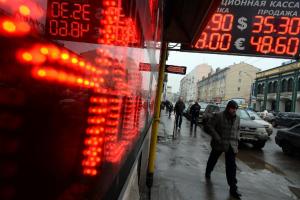


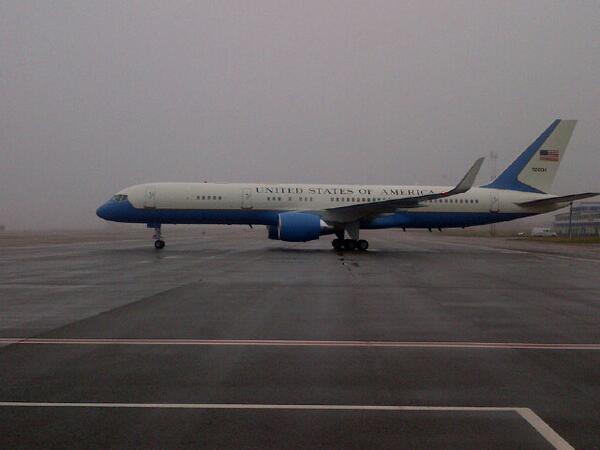

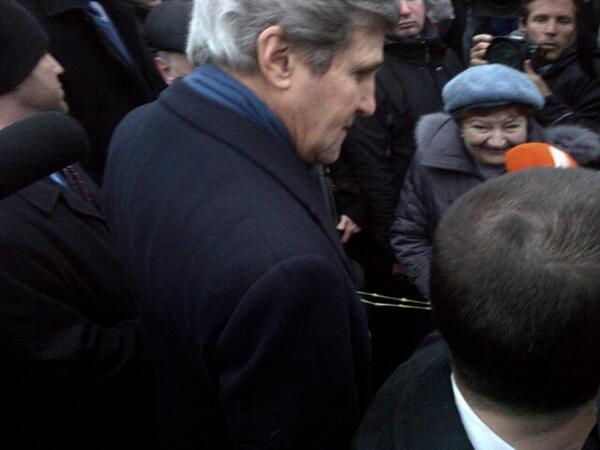



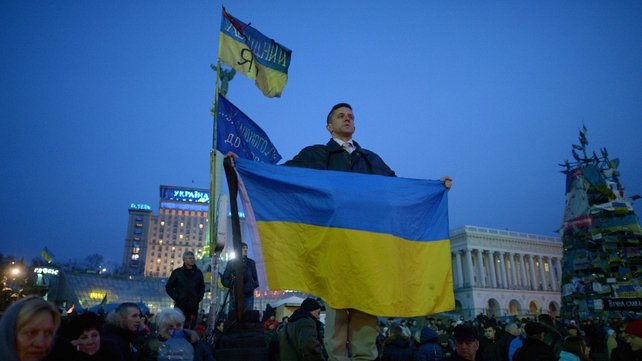





 Pentagon officials say that all military-to-military engagements, including joint exercises, meetings, and conferences have been placed “on hold” indefinitely.
Pentagon officials say that all military-to-military engagements, including joint exercises, meetings, and conferences have been placed “on hold” indefinitely. And while the European Union seem s
And while the European Union seem s The US is promising sanctions, travel bans, and asset seizures. There was even some talk of
The US is promising sanctions, travel bans, and asset seizures. There was even some talk of 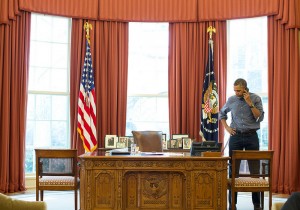
No comments:
Post a Comment